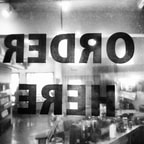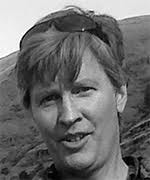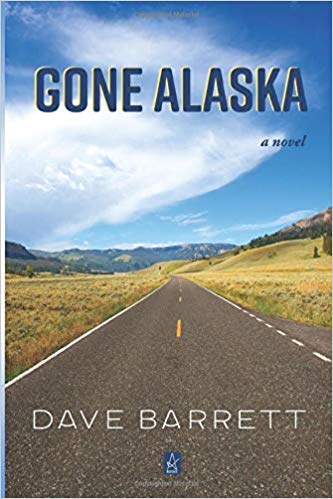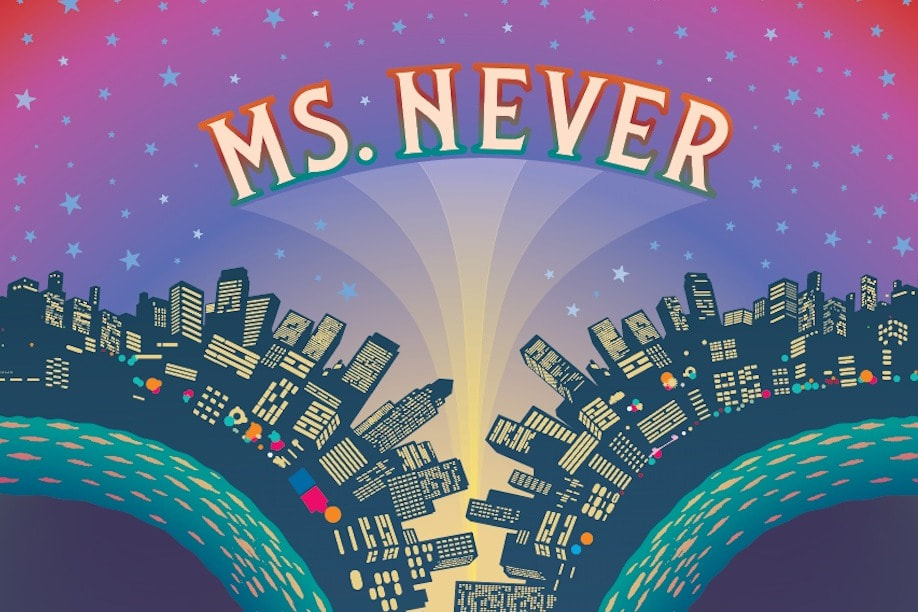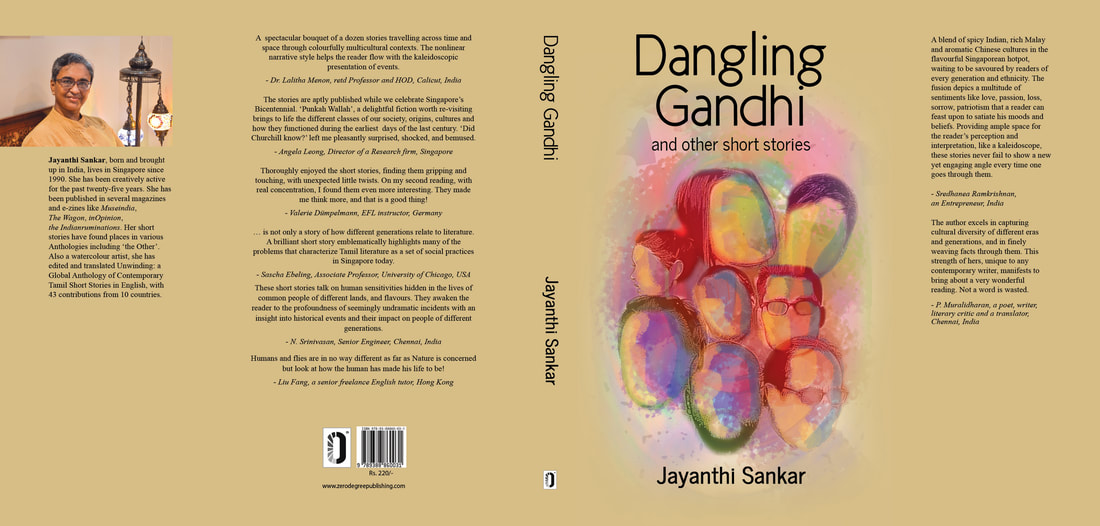In this, her eighth book, “Words Spill Out,” Ann Christine Tabaka has created a montage with her poetic works; expansive in its varied, yet beautiful content. The poet takes us on her journey of captured memories, experiences, and emotions. She creates captivating imagery with her words. She has also included lovely photographic imagery; a beautiful addition to her words.Ms. Tabaka is a skilled writer, traditional in style, utilizing her beautiful flow of words and cadence. A treasure, this book will be picked up time and again by the reader. The subject matter encompasses so many subjects, painting her own pictures in poetry and prose. A perfect collection for all poetry lovers! Brenda-Lee Ranta, author of Heart Sounds FIND IT HERE:
1 Comment
GONE ALASKA: A NOVEL BY DAVE BARRETTGONE ALASKA is a coming of age novel about a young man named Adam Porter who leaves his North Idaho home for adventure on a fishing boat called the Western World that trolls the waters of Southeast Alaska. Philip Swanson, the skipper of the Western World, is one of the novel's antagonist. Adam is thrown into a world that is completely foreign to him. His coming of age is not only his understanding of the world of men and women, but of his place in the natural world as well, and the damage humankind is doing to the natural environment they work in. EXCERPT PUBLISHED IN SCARLET LEAF REVIEW IN 2016Chapter Eleven of “Gone Alaska”Exchange at Sea When I opened my eyes that morning. . .it wasn’t to the image of Miss Sue Ann Bonnet spooning chicken broth into my mouth and replacing cold compresses from my forehead. . .as I’d been dreaming. . .rather. . .to Philip Swanson’s upside-down face beaming down at me like Satan himself. . .kicking madly on the head-piece of my bed board inches from my left ear. . .yelling:
“Out of that bunk and up on deck! That’s it! By God . . . look at him, boys. The Wonder kid from Roxie’s Whorehouse! Out the night before to make it with all whorehouse employees and kick ass on every rebel-rouser and sorry son of a bitch in Pelican, U.S.A.! That’s him all right. Rested now and just a-raring to go at them lines out back!” “All right! All right!” I protested when Swanson started to physically pull me off the bed board. “I’m getting up—damn it!” I swung my legs over the edge of the bed board. Thus, semi-seated, with my sleeping bag still wrapped around my legs, I was at least allowed to hold my head in my hands and wonder. “What time is it? Where are we?” There was enough light in the hull that I guessed it was somewhere around nine in the morning. I could tell by the familiar see-sawing action of the floor that we were at sea, but this see-sawing was more marked than usual. Swanson had thrown together a pot of coffee and was lighting the stove’s pilot. “You slept through half the morning,” Swanson said, extinguishing the match just before its flame reached his fingertips. Only Swanson had mastered the technique of lighting our damper less stove with a single match stick. “After the Rapp brothers brought you down from Roxie’s I let you sleep the rest of the way out.” I shook my head carefully. I remembered something about being carried back to the boat from the whorehouse and how Helen had dropped a vase over my head. Palming the top of my skull, I felt a bump the size of large walnut. “Thanks. . .” I said. Then, checking myself for other bruises, added: “Where are we? How come we aren’t in Pelican?” Swanson explained that the Alaska Board of Fisheries out of Anchorage had posted an EMERGENCY THREE DAY CLOSURE coming up in three days. The bad thing about this was the dates of this closure coincided with the peak of the King Salmon Run. Each year, a day either way of a fixed calendar date, the greatest number of migrating King salmon flooded these inlet waters on way to their natal streams. The money made during these three days often determined a good season from a bad one. It was Swanson’s opinion that the regulators had chosen to announce this closure date at the last minute to catch fishermen off guard. This is why we’d put-out from Pelican last night for Esther Island. Esther Island was a misnomer: a kind of underwater reef that formed a shallow expanse of water salmon liked to travel over as they come off the open ocean. It was at the northern head of Chicagof Island, midway between Cross Sound and the Pacific Ocean. It was here Swanson believed we might “head-off” some of these salmon before they poured into the inlet waters from the open sea. I remembered the conversation I’d had with Sue Ann Bonnet about decreasing fish counts and over fishing, but decided it was probably not a good idea to bring this up right now (particularly in wake of the trouble I’d caused the night before!). “And that’s where we are right now?” I said, my aching head beginning to throb. “You got it!” said Swanson. Then, pouring himself a fresh cup of coffee, finished: “I’d best get back the wheel. We’re near a good-sized wash-rock ‘bout now. Feel free to mug up . . . splash your face . . . and what-have-you. But don’t be pussy-footing around. A little something’s come up and I’m in need of your services above.” And like a bee ordered back to its hive, Swanson turned and disappeared up the 5-step ladder. Dashing, tripping, stumbling, falling, crawling across the floor of the hull, I made it just in time to vomit into an empty herring bucket across the room. Like a dog over its dish, I held my face over the salt-rimmed bucket and continued to wretch. My skull squeezed down on my brain each time a new heave came up. In midst of this came a weird urge to pray. But to what God or image I could not think! Perhaps for the first time since I’d been out here I realized just how removed from the rest of the world I really was. No one, not even Brian Connelly back in Juneau, really knew where I was at this moment. I’d made reference in a post card that I was fishing: but as to exactly where and with whom I was fishing, nothing. As far as he or anyone else was concerned, I could be anywhere along the Alaskan coast from Ketchikan to the Bering Sea! Overwhelmed by the thought, I clawed the hardwood floor as a new wave of nausea rose up inside me. Finally, there was an end to it—or, at least, a great slowing down. The spinning slowed. The hot flashes cooled. Slowly, very slowly, I stood up. “Christ. . .” I thought out loud. “What have I gotten myself into?” From above came the rattling interruption of Swanson’s voice: “Haul ass, down there! I need you on the bow-point! Pronto!” “Screw yourself!” I cursed beneath my breath, knowing Swanson couldn’t hear because of the engine. Because the swells outside were getting worse, I opted to sit on the floor while getting dressed—one sock, one foot at a time. “Right on time!” was the first thing Swanson said when I appeared on deck. I’d found the wheelhouse deserted, and came upon Swanson taking a leak over leeward side. The light outside and the sound of the Western’s engine was brighter and louder than I’d even expected. The waters around us were bluer, wider than usual; choppier too. The boat was tacking hard right, as though caught in some strange whirlpool of a current. Not more than a hundred yards to the left of our wake, a capsized rowboat bobbed in a strange circular fashion on the water: like the dial on a broken compass. “On time for what?” I said, looking away as Swanson adjusted himself in front of me. Swanson pointed directly over my shoulder. Turning to see, I saw nothing: just the wide open swells rolling by, a few seagulls cartwheeling overhead. Shrugging my shoulders, I indicated that I didn’t understand. “No,” Swanson said, once again pointing over my shoulder. “Up along the prow. Over the roof of the wheelhouse.” Still shaking my head, I stepped back a little and the object Swanson had so ardently been alluding to came into full and sudden view. “H-o-l-y shit!” was the only thing I could think to say. “H-o-l-y fucking shit!” No less than twenty feet off our prow, another trawler, the Lacey J, was running alongside us. Two men in stocking caps on the Lacey J’s deck were waving good- naturedly at us. With a shudder, I noticed that no one was at the wheel of the Lacey J. And there was no one at our wheel either! Had this positioning taken place in a quiet harbor or cove, I’d think little of it. But here—on a flooding sea, in some of the roughest water I’d encountered yet—the closeness of the other vessel was terrifying. “Look at those crack-heads!” I said, turning my torso towards Swanson but unable to turn my eyes from the Lacey J in irrational fear that doing so might cause our two trawlers to collide. “What are they up to? They must be twelve-miles high!” Braving a glance in Swanson’s direction, I discovered I’d been talking to a steel pipe. “SWANSON!” The wheelhouse! I thought. Of course! Swanson had gone there to steer us clear of these two fools and their trawler! But entering the wheelhouse, I found it as vacant as when I’d first come up. The steering wheel was locked in auto-pilot: turning a quarter turn to the right, thumping to a stop, bouncing back to the left, and then repeating the process. Rushing back outside, I searched fore and aft for my skipper. After stumbling over a tool-box and saving myself from toppling overboard by grabbing a steel cable, a horrid thought entered my brain. Maybe Swanson had fallen overboard. The way the boat was rocking and wind was blowing it wouldn’t take much to toss anyone, even an old salt like Swanson. Swayed by this notion, I scrambled about on deck in renewed hysteria. Not until I’d literally tripped over Swanson did I uncover the secret of his whereabouts. “Hey! Aaaaah! Get off--!” While searching out to sea for Swanson’s floating carcass, I’d inadvertently stepped on his outstretched hands just as he was climbing up from the holds below deck. A strong swell rocked the Western World’s stern, forcing Swanson to grasp my leg as he crawled up out of the hatchway. I grabbed his elbow and lifted him to his feet. “Thanks. . .” Swanson grumbled, then quickly added: “Here. Take this. Like this!” Swanson shoved a half-frozen salmon into my arms. Shocked, I simply stared at the fish. Swanson grabbed my stiff hands and twisted them about until I was holding the fish properly through their gills. “That’s better,” he said. “It’s a fish. Not a goddamn infant!” The Lacey J’s position had slid back so it was riding left to our stern. Only one of the crewmen was on deck now, the other manning the wheel. “Yo! Swanson!” the stocking-capped man at the rear of the Lacey J called across the white-capped waters. “We ain’t got all morning.” Swanson shrugged his shoulders and nodded towards me. “Yeah, well. . .” the other fisherman answered. “We still ain’t got all day.” Swanson gave a big thumb’s up sign to his fellow fisherman. Under his breath, he mumbled to me: “What a doofus! Word is his pretty young wife is banging some cannery hand while he’s out here busting his balls!” I noticed the stocking-capped fisherman was no longer smiling and was leaning over the side of the Lacey J as if to hear what Swanson was saying. “Come on,” Swanson said, nudging me forward. “You heard the man. We need your services on the bow. Pronto!” “The bow?” I asked. “In these waters? How come?” We were at the door of the wheelhouse now. Inside, scattered electric messages sounded on and off over the CB radio. Through the water-sprayed window of the wheelhouse, I saw that we were within a few hundred yards of that strange area where the tidewaters of Cross Sound met up with the tidewaters of the Pacific Ocean—where the GREEN gives way to the BLUE—the waters between them foaming into a roaring silvery line of froth that stretched as far as the eye could see. “Just a little chore,” Swanson answered, in his most matter-of-fact voice. He appeared busy re-tying a knot on a rope attached to the crosstrees overhead. “It’s very simple, really. All you got to do is take that there soaker up to the bow-point, and hop over to the Lacey J with it. Then either Joey or Gabriel, there, will swap you a little something for the fish. You jump back aboard with the something. Simple as that.” Giving the knot a good tug, Swanson slipped past me into the wheelhouse. Pot. That was the little something Swanson was asking me to risk my neck over. We’d run out of it the day before Pelican and Swanson had just about lost it. When I entered the wheelhouse during a lull, Jimi Hendrix was playing at full volume and Swanson was scratching the bottom of his pipe with a straightened paper clip for resin. Boxes and papers and magazines were strewn about the wheelhouse; the Pin-Up calendar was torn from the wall; and his coffee cup shattered on the floor. Thankful he hadn’t noticed my presence, I’d tip-toed back to my lines and hadn’t thought about the episode again until just now. “You’re joking,” I said, following Swanson into the wheelhouse. “Really. This is a joke, right?” Now Swanson was busy grinding the Western World’s gears into neutral, then reverse, then forward into low. I had to brace myself by pressing my free hand against the ceiling. Raising the fish to eye level, I continued: “For a stash of pot you want me to jump boat—“ “Get it out! Get it out!” Swanson started shouting. “Get it out of my face!” I stood there with a confounded look on my face. “The fish!” Swanson said. “Get that goddamn fish out of my face! I’m trying to steer the boat, goddamn it!” Bewildered, I jerked the salmon away from Swanson’s face. At that instant, a great groan came up through the floorboards as the Western World lurched into higher gear. That same instant, I toppled headfirst into the dashboard, dropping the salmon onto the floor of the wheelhouse along with pen and pencils and other miscellany from the dash. Stumbling to my feet again with the salmon, a clip-board, three pencils and a coffee coaster, I apologized for dropping the fish. “Sorry. I just don’t see why we can’t—“ “Because I said so!” Swanson interrupted. “This is my boat. If you don’t like it . . . pick up your gear and go. Right now. Just pick it up and go. The day I start letting a puller tell me what to do—“ “I ain’t telling you what to do!” I interrupted, raising me voice at Swanson for the first time. “Just let me know why we can’t throw the bloody fish across instead of me risking my neck jumping!” Both of us were surprised by my sudden outburst. There was an awkward silence for several seconds as we looked at and away from each other at the same time. Finally, Swanson spoke: “We ain’t throwing it across, goddamn it, because it’s too damn easy to lose that way.” The Lacey J was pulling up alongside our prow again. Through the wheelhouse window, I saw the man on deck had moved up to the Lacey J’s bow-point. He was crouched there on a knee, pointing at his wristwatch. “All right,” I heard myself saying. Without another word between us, I took my rain slicker down from its nail on the wall and left the wheelhouse, thinking, the man is relentless. Walking up that bow-point was about as easy as walking up the curve of a banana. The gales went unchecked here: strong enough to knock over a small child; and, quite possibly, a full grown man trying to balance a hangover; a twenty-pound fish, and a dozen other thoughts completely unrelated to the task he was performing—the most recurrent of these being that if he had any sense at all he’d up and quit on the spot; have Swanson deliver his own goddamn fish; fetch his own pot; etc., etc. “How goes it?” came a voice over the wind and blasts of water against the Western World’s flank. It was the fisherman crouched on the bow of the Lacey J; the one Swanson had referred to as Gabriel. He had a large red face that matched his stocking cap. I guessed it was a face made red as much from drink as from the elements; a sad but generous face. Overtop of a long-sleeved thermal shirt, Gabriel wore a black T-shirt with some faded lettering across the chest. ANYONE CAN BE A FATHER. . . BUT IT TAKES SOMEONE SPECIAL TO BE A DADDY! I wondered if Gabriel’s wife had gotten him the shirt before or after she’d started fooling around on him. I was past the anchor windlass now. From here out, I was on my own. There were no ropes or cables to hold onto now, no wheelhouse to fall back on: just the sky above, the sea below, and this terrible oblivion tottering all around me. “Great!” I called back, fearing another spoken work might send me over. “Just go easy!” Gabriel encouraged. “This is nuts—but, if you take your time, it’ll be all right!” I found myself glancing out at the water too much. It was fine when my sights were set on the course of the water, but when I redirected my sights to the course I was taking along the bow I discovered that the very boards I stood on tended to run out beneath me also. “Hey, kid! Slow it down. And keep low!” Gabriel again. I glanced up long enough to see that he was acting out what he meant by “keep low”: squatting up and down like an overgrown baboon. “Got it! Keep low,” I heard myself repeating. “Keep low.” I reprimanded myself for thinking Gabriel looked comical. This advice just might save my life. Aping Gabriel, I inched my way along that mile-long last five feet to the end of the bow-point. . .thinking, and, at the same time, trying not think, about those war horror stories regarding soldiers who crap their pants in the line of fire. I’d always laughed right along with my schoolmates at the thought. I wasn’t laughing now. “Holy Christ. . .” I whispered, when I’d made it to that edge. I took a knee and waved at Gabriel. “What the hell are we doing here?” I braved across the wave and foam. But Gabriel didn’t seem to hear me even though we were only fifteen feet away: fifteen feet, that is, at a given moment. It all depended on the rise and fall our two bows. Our trawlers were rising and falling on the beginning of open ocean troughs. At one moment, you’d become elevated on a mound of water; then, the next moment, this mound would cave in and you’d find yourself at the bottom of a watery bowl, with nothing to see around you but climbing walls of water. “Stay down!” Gabriel was instructing me to remain crouched while Swanson edged our prow closer to the Lacey J. Soon, our bows were see-sawing about ten feet apart. Gabriel stood up and moved to the edge of his trawler’s bow. He signaled me to remain crouched while the trawler’s inched closer. It wouldn’t be long now. My breathing quickened to match my heart. My mouth and throat were dry and I wished I drank more water after vomiting in the hull. Our bows were rising and falling opposite each other now. When one came up, the other came down. It made me shudder to think what would happen if I should somehow wind up in that no-man’s land of water between the two heaving bows. For a second, I imagined my body floating face down in dead man fashion between the boats . . . my green rain slicker puffed up with air. Then, the next second, one of the two hulls would come smashing down on top of me—busting my skull open like watermelon; my body repeatedly throttled by the hulls of the two trawlers until I was, inadvertently, pushed aside. Then Swanson, or the men aboard the Lacey J, would drag my carcass out of ocean with a long-handled gaff. “Hey! Heads up! If you’re gonna jump—now’s the time!” Shakily, I stood up, holding onto the anchor until I was sure of my balance. “You all right?” Gabriel asked. He was within eight feet of me now. “Want to call this damn thing off?” “No,” I said, forcing a smile. “I got it.” The boats were dangerously close now. Not only did I fear making the jump, but now had the additional worry that our two prows might collide. I toed my way to very edge of the bow. I switched the salmon into my other hand to assure a better grip. Then, carefully timing my jump midway between the rise and fall of our two bows, I leaped across to the Lacey J. Gabriel was there to greet me as I landed on the bow of the Lacey J. In my zeal to make it across, I’d jumped a little too far. If Gabriel hadn’t been there to catch me, I might have continued right on over the other side of the Lacey J. “Guess I overdid it a little,” I joked. “I’d say!” said Gabriel. “Had me thinking you were Michael Jordan a second there!” We laughed at the slapstick notion of me going into the drink on the other side. A couple of seagulls were circling overhead. Pointing toward the gulls, I said: “Maybe they were waiting for me?” “Yeah!” Gabriel laughed. “Right!” A fresh gale blew across the bow the Lacey J. Both of us were relieved when it let up. I turned the nearly-thawed salmon over to Gabriel. He handed me a half-ounce of weed in a Ziploc sandwich bag, and, in a second sandwich bag, a fistful of twenty dollar bills. “What’s this for?” I asked. Gabriel’s face flushed. “You’ll have to ask your skipper about that?” Apparently, the stash of pot was not the only reason Swanson had sent me here. Gabriel turned—as though to leave—then turned back—offering me his hand. “What’s your name, kid?” “Adam,” I said. “Adam, huh?” Gabriel said, scratching the back of one of his big red ears. “Well . . . good luck, Adam. You’re doing something I could never do.” Gabriel glanced uneasily towards Swanson. “Worked a whole summer with that son of a bitch ten years ago. Wouldn’t do it again for all the tea in China.” Then, raising the salmon as though to give reason for his hurry, Gabriel walked back to the Lacey J’s wheelhouse. I looked towards Joey at the wheel. Joey was pointing emphatically past me towards the bow-point. The reason for his urgency was apparent at a glance: our trawlers were pulling apart. Already there was a good eight feet of space between them. Shoving the two stashes in the front pockets of my jeans, I hurried to the edge of the Lacey J. I leapt back aboard our boat while the Western World’s bow was still coming up. I landed somewhat successfully—falling hard on my knees beside the anchor. I returned Swanson’s thumbs up from the wheel, then remained crouched on the bow as our two trawlers pulled apart. I saw Gabriel emerge on deck again for an instant, then disappear inside the Lacey J’s wheelhouse. Who was this Gabriel? What else could he tell me about Swanson? Or—better stated—what could he tell me about him that I didn’t already know? When the other fisherman on the Lacey J, Joey, waved goodbye from the wheel . . . I did not wave back.
Ms. Never, coming out in early November Farya Navurian seems like an ordinary young woman trying to get ahead in the city while struggling with depression. But her depression is anything but ordinary - it has the power to destroy time and space. Growing up the moody daughter of a space-faring hero of The Greater Anointed Imperial Ohioan Commonwealth, Farya annihilated most of that world and its history, leaving behind the husk-like Buckeye State. One day at a record swap, she meets Bryan, a divorced telecom CEO. More than record collecting, what they share is that they each carry a howling secret. Bryan’s business is a cover for a bigger operation that buys human souls and sells luxury afterlives using shady terms of service in mobile-phone contracts. The two of them fall in love, and as they start a life together, their secrets back them into a corner where they have to come clean - and take drastic steps - to save themselves, and possibly reality itself. CAROL SMALLWOOD INTERVIEWS NEW YORKER COLIN DODDSMs. Never by Colin Dodds 470 Pages, 5”X8” Paperback $18.18 Also available as an ebook and an audiobook Science Fiction, Literary Fiction Publication Date: November 1, 2019 ISBN: 978-1690788140 Contact: [email protected] More info at: thecolindodds.com https://www.amazon.com/dp/B07WNRNF8P?ref_=pe_3052080_276849420 https://www.gofundme.com/f/ms-never Smallwood: What is your literary background, education? When I grew up in Central Massachusetts, it was a place with a great emphasis on, and reverence for, literature. A lot of writers and comedians were kids in Massachusetts in the 1980s - disproportionate amount among just the people I knew growing up. It didn’t seem all that special at the time. But maybe it was. Massachusetts had a strong mix of the prigs and the hippies and they all agreed that whatever mattered, it was invisible. The whole world seems to have run screaming from that variety of inquiry and appreciation. Seems, anyway. Maybe that’s me being middle aged, or maybe that’s living in this particular iteration of New York. But the invisible important things are still there. Just try and prove me wrong. Anyway, I did the bulk of my grammar and high school education at Catholic institutions, which made me even more sensitive to metaphysics, as well as its bullying tactics where the ethereal rubber hit the road of our minds. From there, I fled to college in Southern California, where all of those dynamics - and the accompanying humor - simply didn’t exist. I barely lasted the school year, then moved to New York, where I finished my education at the New School. College in New York wasn’t a paradise, but I had the freedom to make my mistakes in a rotating cast of 8 million strangers. I got roughly what I deserved, and a degree to boot. The school, then The New School for Social Research, but The New School University the year after I graduated, had no campus to speak of. It was more of a placeholder, and I could take classes at Cooper Union and even NYU. It was good. I learned as much from the bad jobs, bartenders and strange folks in the East Village as I did from the classes. When I started there, I doubted I’d find anywhere I belonged. And by the end of school, I still hadn’t. But I left with the belief that I could. Smallwood: How did you ever manage to write your latest novel, Ms. Never, from the female viewpoint? The main character in Ms. Never, Farya Navurian, is prone to fits of depression that culminate in what she calls “seizures,” which annihilate enormous swaths of reality. The depression that brings on the seizure are, like any depression, somewhat manageable. The problem with depression, however, is that you need the wherewithal to do what you need to do to manage it - exercise, meditate, eat better, get out of the house and do something you enjoy, reach out to friends to talk. But, alas, depression robs you of that wherewithal. Depression has a way of making itself unmanageable. For anyone who is close to depressed people, this makes sympathy complicated and difficult. It seems like the depressed person is making up their own problems, or are childishly refusing to take obvious steps toward caring for themselves. Now, add in an element of depression which destroys physical reality to the point where millions of people alive now have never been born, dozens of millennia never happened and hundreds of cities were never built. Then sympathy for the depressed person becomes almost impossible. This impossibility of sympathy is something that Farya grapples with throughout the book. Farya the destroyer of worlds had to be a woman to be remotely sympathetic. I think that, even with the recent changes to what we all say and expect from the genders, that there are still some aspects of our common humanity that we find especially distasteful in men. That we are only nominally in control of how we feel, and only slightly more in command of our actions, is a fact that’s especially hard to accept in a male protagonist. And writing someone other than yourself is what fiction is all about. Smallwood: In what genre did you first begin writing—that is, nonfiction, poetry, or fiction and how old were you? I remember writing a story about a Godzilla-like dragon when I was seven. I really enjoyed that. Then I started again in high school, with some gory horror. Poems and more surreal fiction started sophomore year. Then it was off to the races. I wrote poems and short stories throughout high school and into college, where I wrote a few plays. Since then, I’ve written screenplays, novels, advertisements, and a whole lot of stuff that certainly wouldn’t burnish my dim reputation. But I’ve always written. Smallwood: How has living in different places influenced your writing? I’ve lived almost my entire adult life in New York City, after a short and turbulent period of traveling. When I do get out of town on vacation or for work, it’s always refreshing, always dilates the senses. There aren’t just a lot of places to live, but many ways to live. That’s always a tonic to remember. Living in different places hasn’t influenced my writing so much as it’s influenced me. Living in Massachusetts shaped my character on a basic level, made me willful and fairly earnest. Living in California cured me of wanting to live in California. Living in New York taught me the essentially mercantile values of being adaptable and clever, keeping possibilities open, and not taking failure or rejection very seriously. Smallwood: How has having positions beyond writing helped you as a writer? Of course, those jobs have helped me survive. But beyond that, they’ve exposed me to different kinds of people, to the dynamics that shape the world I live in, and allowed me to travel. Maybe the most valuable things those jobs have done is to force me to learn about things I wouldn’t have learned about otherwise, like business, finance, the law, government, public-relations and marketing. In college, I studied mysticism, literature, art and history. And I might have been content to mentally live in those worlds, if the threat of starvation and disgrace hadn’t driven me into the offices where I’ve spent so much of my adulthood. To be fair, I still argue privately about whether or not to be bitter. But for better or worse, being taken from that for eight to ten hours at a time to go to work has been deeply informative of my writing. In some ways, I think that’s made me a better writer. It’s not uncommon to read or watch something and ask about the main characters “but how do they make a living?” It’s a real weak spot for a lot of writers who have only ever worked as writers - they have no idea how anyone makes a living, or how those occupations shape and distort almost everyone’s personality in 21st century America, where most of what we do with our waking hours is work. Smallwood: Please tell readers about your poetry collection published by Main Street Rag Publishing Company: Spokes of an Uneven Wheel came out just about a year ago. It’s a collection that encompasses a wild few years of poetic work through the birth of my daughter. Main Street Rag had published my poems in their journal. And when they had an open reading period in ‘17, they accepted the collection not long after I sent it over. Once it was published, the book was a good chance to go out and do readings, and to connect with old friends in the poetry world. It was also an opportunity to go out and get some nice reviews. It’s a great book and everyone should buy a copy or at least read some of the poems in it, which they can for free here. To sum up the experience of having Spokes of an Uneven Wheel published, there was less than no money and little glory, but it got me back in touch with many kindred spirits. Smallwood: What are some magazines in which you have appeared? I’ve had poems, essays and short fiction appear in more than three hundred publications including Gothamist, Painted Bride Quarterly, and The Washington Post - but mostly in smaller journals. Smallwood: How did you manage to also write screenplays, direct a film, and work as a video producer? Videos, movies, poems, articles, infographics, podcasts, novels and essays - they’re all related by how they’re created. They all sink or swim the same questions: “What is the story?” “Why am I telling it?” “Is it believable?” “Is it new?” “Is it fun?” “Is it clear?” Testing the material - whatever it is - along these lines is the first commonality. The second is the dogged willingness to find and create solutions when the material fails those tests. The beauty is that neither of those two acts is something one can ever be quite good enough at - my words have forked no lightning. And that’s exciting. That excitement is the third thing they all have in common. I enjoy them all. Smallwood: I can see that being a journalist, editor, and copywriter would help a great deal in getting your work accepted. What are you working on now? What I write and where I write for a living hasn’t really done much to get me into the kind of favor-trading ecosystem that would help me get published. That’s all dumb luck, and more or less relentless submitting of my work. Aside from post-production on a short film, I am not working on a specific big project. I’m playing publicist, marketer, huckster, fundraiser, art director, social media manager, and public personality - as much as I can to get Ms. Never into the hands, eyes and minds of as many readers as I can. And I imagine that the successes and failures of this endeavor will inform what comes next. Other than that, I’m filling notebooks and watching the brush for signs of large, wild movements. More about Colin’s work at thecolindodds.com Carol Smallwood is a literary reader, judge, and interviewer. A recent book is Patterns: Moments in Time (Word Poetry, 2019).
Title: Dangling Gandhi Author: Jayanthi Sankar Genre: (Literary) fiction/short stories Published by: Zero Degree publishing, Chennai, India Year: 2019 / ISBN: 978-93-88860-03-12 Pages: 154 Price: Rs.220 Sredhanea Ramkrishnan in a dialogue with the Author Jayanthi Sankar |
ISSN 2369-8446
To bring joy to readers everywhere. Archives
June 2023
Categories
All
http://roxananastase.weebly.com/
|


